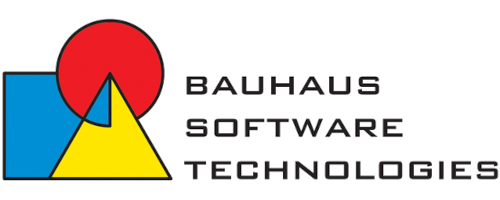Projects
SecureSmartHomeApp – Development of secure mobile applications for controlling smart home systems
The goal of this project is a systematic and comprehensive security analysis of app-controlled smart home systems as well as the development of a reference security architecture for such systems.
morePortSec – IT Risk Management in Port Community Systems Based on the Software Architecture
The PortSec project develops a systematic and comprehensive IT risk management for port community systems based on the software architecture while considering legal and economic security requirements.
moreCertifiedApplications – Lightweight Security Certification for Java-Based Applications with the help of Tool-Supported Program Analyses
The R&D project CertifiedApplications aims to develop a tool that supports the process of security certification of Java-based applications, in particular JavaEE applications and Android apps.
moreSecPatterns – Detection and Validation of Security Patterns
This projects aims at developing program analyses to detect and validate security design patterns.
moreZertApps - Certified Security of Mobile Apps
The ZertApps project (Certified Security of Mobile Applications) aims to provide a comprehensive security analysis infrastructure for Android apps.
moreEmpirical research on the impact and evolution of Bad Smells
This projects investigates the evolution and impact of bad smells.
moreSupport for correct Evolution of Software Product Lines (EvoLine)
This projects aims at developing techniques to check the integrity of a product line implementation whenever it is changed during its evolution.
moreBauhaus
Maintenance and evolution of software systems causes 50-80% of the costs in the lifetime of a software product. The Bauhaus project aims to make the work of maintenance engineers easier and more effective by developing analytic methods and tools that support better program comprehension on the code and architecture level.
Bauhaus is a long-time and continuing project of the Software Engineering Group and is run in close cooperation with the University of Stuttgart and the Axivion GmbH.
moreEmpirical Studies on Program Comprehension
This project is a cooperation of the Applied Software Engineering Group from the University of Munich and our group. We will perform empirical studies to get a deeper insight into the field of program understanding.
moreArchitecture-Centric Security Analysis of Business Applications (ASKS)
The project ASKS aims to analyze business-critical software (e.g., JEE and .NET applications) with respect to security. The software is analyzed based upon the software architecture which allows one to focus the analyses to the security-critical data and modules.
moreEmpirical Investigations of Source Code Clones towards new Methods for Clone Management
The Software Engineering Group and the Software Architechture Group of the University of Waterloo, Canada cooperate in the research on source code clones and methods for clone management. Travel funds for this cooperation are provided by the German Academic Exchange Service (DAAD).
moreEmpirical Studies on Software Redundancy (Bauhaus/Clones)
In this project we perform empirical studies on how duplicated source code - so called "clones" - evolve over multiple versions of a software system. We will focus on the reasons for their appearence and the consequences that arise from their existence in the source code. The conclusions will help us to design and implement tools to support the programmer to find, rate, follow and remove clones as well as perfoming consistent changes to all fragments.
moreBrePOS III
Bremen Port OS (BrePos) III is a new edition of the traffic control system for all harbours in Bremen. The system was developed by bremenports consult and DBH Logistics IT AG on behalf of the Bremen port authority. The Software Engineering Group assists bremenports consult to supervise the high quality requirements of the software.
moreBuilding Blocks for Expertise of IT Professionals in self-directed Learning Processes (Modul-IT/E-Learning)
Within this project, e-Learning modules for teaching different subjects of software engineering are developed. The goal of this publicly founded project within the "Bremen in T.I.M.E." program is to enhance, extend and transfer contents from university courses to a wider public.
moreXerox Research Funding
The aim of the project is the support of the integration of different software systems and their evolution. The intended results are a methodology and supporting tools for the integration, maintenance, and evolution that guarantee optimal results with respect to quality and costs. The software architecture as a basis for the integration is reconstructed using source code and other additional information provided e.g. by the developers. Furthermore runtime information is gathered and related to components of the architecture in order to be able to analyze performance aspects w.r.t. the chosen architecture.
moreArQue - Architecture-Centric Quality Engineering
The goal of the project ArQuE is to develop an integrated and general methodology which enables goal-oriented, architecture-centric, and strategic quality engineering. Reverse Engineering techniques are used to create architectural views that are optimal for the specific quality profile. Metrics based on these customized views are used to assess the quality during evolution.
moreGlobal Program and Architecture Analysis for the consolidation of Software Variants to Software Product Lines (Bauhaus/PL)
The scope of the project Bauhaus/PL is to investigate how the software architecture of existing software systems can be utilized to identify necessary and reusable functionalities and components to be used for product line oriented software development. Producing in product lines promises a reduction in development costs and time combined with better software quality.
moreGlobal Program and Architecture Analysis of object oriented systems (Bauhaus/OOS)
This project researches methods for the analysis of object oriented systems. The methods are tested whith tools for systems written in C++ and Java. The development of new methods is required to capture the dynamic behaviour of object oriented software analytically and to present it in a way that is understandable to the user.
more







